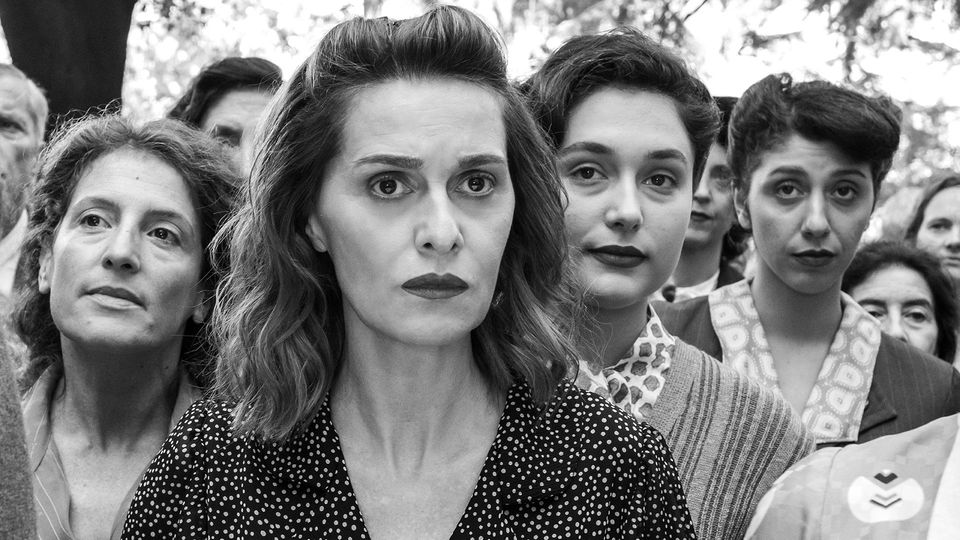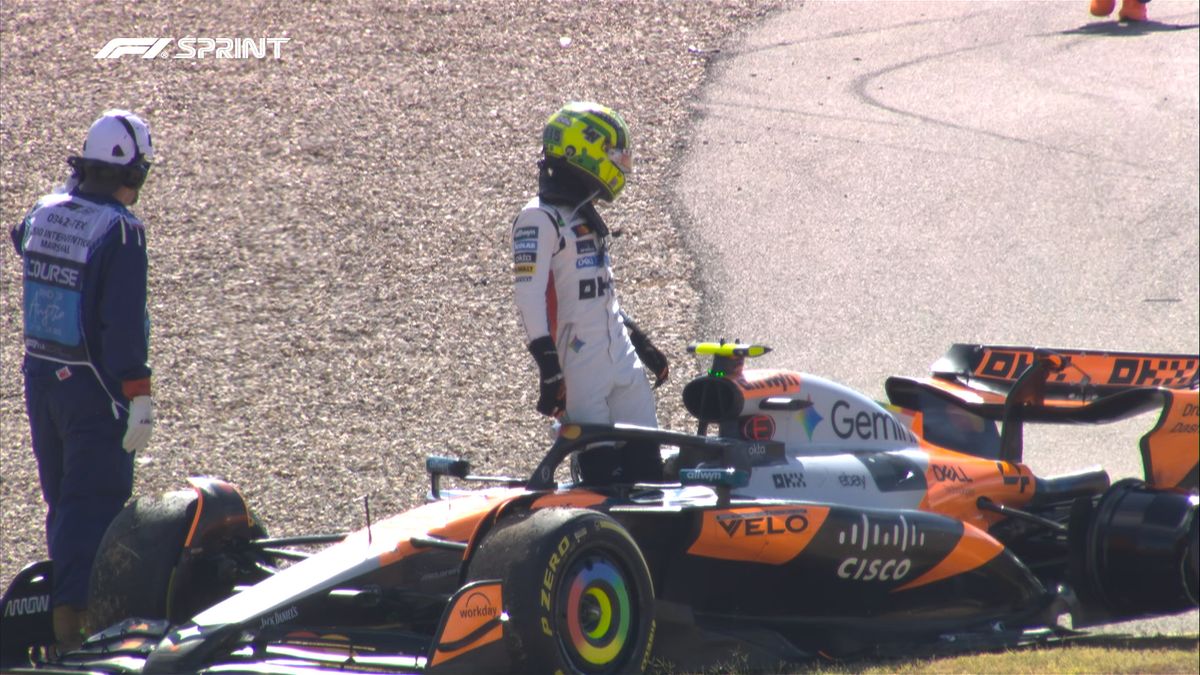The tragicomedy “Tomorrow is Another Day” is about domestic violence in the 1940s. The film hits a nerve in society and makes its director an unexpected spokesperson for Italian women. It will soon also be in German cinemas.
You cringe when your husband swings his hand. But the slap doesn’t happen. The couple slides into each other, moving rhythmically to rock music – a scene between dance and fight. It takes away the force of violence and makes it look abstract, ridiculous and comical. The director Paola Cortellesi, who also plays the female lead, tells the everyday life of women in post-war Italy with great lightness and irony. It is a story of poverty and domestic violence, of solidarity among women and the courage for liberation.
The design is striking: shot in black and white, but with a current soundtrack
Delia, a mother of three, is married to Ivano, who constantly beats her to get rid of his frustration. One day she finds the strength to rebel, defying the expectations of her family and society. The moral painting is shot in black and white in the style of the politically motivated neorealist films of the 1940s, which represses the past that is being shown. Rome is shown on the eve of the vote on the introduction of the republic in 1946, in which Italians voted for the first time. But of course the work is much more than a period film.
The black and white images, excluding the opening song, are accompanied by current, rhythmic pieces of music. In her directorial debut, which oscillates between drama and comedy, the actress and comedian Cortellesi succeeds in portraying historical, essentially heavy material in a humorous, almost light way, in the style of Roberto Benigni’s tragicomedy “Life is Beautiful” – and not least through the soundtrack to locate the present. From a safe distance you look at the gender ratio back then and ask yourself: What does it look like today? What has changed and what hasn’t? Depending on your point of view, the answers are not always satisfactory. This is one of the reasons why “Tomorrow is another day” hit a nerve in Italy.

The Italians clap in the cinema, something that hasn’t happened for a long time
It’s been years since an Italian film filled cinemas and was even applauded wildly at the end. The film has attracted five million viewers to the screen since October, making it the most popular film in 2023. It was also the first film by a female director to land in the top ten most-watched Italian films of all time. It has already grossed 35 million euros in Italy and has been purchased worldwide. It opens in cinemas in Germany on April 4th.
Paola Cortellesi, who wrote the work together with screenwriters Furio Andreotti and Giulia Calenda, was inspired by the stories of her grandmother and great-grandmother. “The story is very realistic. However, many women who have not experienced violence themselves heard about it in their families. And even if not, these episodes still seem familiar. They have an impact,” says Chiara Saracen, Professor Emeritus of Sociology, on the hype surrounding the film.
Are women really safe in today’s Italy?
In addition, a few weeks after the film’s release, the murder of a student in Italy sparked a major debate about violence against women. 22-year-old Giulia Cecchettin from near Venice was stabbed to death by her ex-boyfriend and fellow student after she had previously broken up with him. A femicide that shook up the country, also because there are many of them. Both Cecchettin and the murderer came from the bourgeois milieu of northern Italy. Cecchettin’s sister reacted combatively and called for the social problem behind the crime to be seen instead of looking at the ex-boyfriend as a lone perpetrator. Since then, Italy has heatedly debated how patriarchal society still is.
Against this background, “Tomorrow is another day” became unexpectedly topical, and Cortellesi became an informal spokesperson for the topic of violence in relationships. More than 100 femicides occur in Italy every year; a woman is murdered every third day. School classes between Turin and Bari can now see Cortellesi’s film, for educational purposes, so to speak, but also as material for debate in class.
Women hide the money they earn from their partners
“But there is not just a problem of violence,” says Saraceno. “Today, men very often demand that women submit to them. Then they hide the money they have earned from their husbands, like Delia in the film.” It happens that women siphon something from their household wallets as if they were not entitled to this money; as if they had no right to dispose of the common money. “Many people who earn money still give it to their husbands,” says the sociologist. Often a shared house is only registered in the man’s name, even though both have helped finance it.
“There are still too many toxic relationships because women are financially dependent. Because men don’t accept that their wives are independent because of their jobs. Because men don’t accept that women separate,” explains Saraceno. In Italy, just under half of women are employed. Three quarters of the care and concern tasks within a family are still carried out by mothers and daughters. Care work in Italy has always been a woman’s job. “The specifically Italian problem, however, is the greater inequality in the labor market compared to Germany and France,” says the professor.
Many companies react almost offended by the reality
Motherhood remains a career killer in Italy. A quarter of women quit after their first child. 70 percent of employees who quit their jobs are female, and they do so to take on family responsibilities. “The men quit because they have found a better job. The women have an unpaid job that they cannot combine with their professional activity and therefore quit. Or they are bullied by employers or colleagues, they are transferred or they are not given one Flexibility in working hours is granted,” says Saraceno.
This is also a cultural problem, she is sure. “I once gave a seminar to entrepreneurs and presented them with these figures. They were almost offended. But it is empirical data that describes a real situation,” says Saraceno. The film, which is now being widely celebrated and discussed, reflects such economic dependencies and shows historical continuities. Delia’s daughter is not allowed to go to high school, even though she wants to. Her husband Ivano goes to the bar and Delia doesn’t have the money to buy a blouse.
“It is important that the young generation recognize these injustices. The scenes in the film are so obviously unfair,” says Saraceno. Cortellesi’s film shakes up and touches at the same time because it is lively, clever and yet without a moral pointer. “Tomorrow is another day” leaves you feeling enthusiastic, with fresh courage, and perhaps even with the unswerving hope that things will soon change.
Source: Stern
I have been working in the news industry for over 6 years, first as a reporter and now as an editor. I have covered politics extensively, and my work has appeared in major newspapers and online news outlets around the world. In addition to my writing, I also contribute regularly to 24 Hours World.




